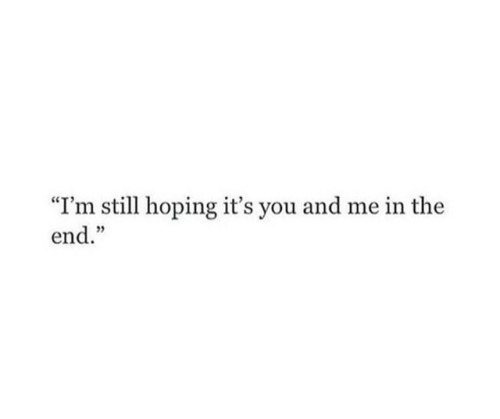Photo

Da ting go skraa (via /r/BlackPeopleTwitter)
68 notes
·
View notes
Text
When the world is all too much, this is something we can count on. Pun intended.
When you're about to cry, think of words that rhyme or count backwards from 100 in sevens. Engaging the logic part of your brain shifts bloodflow away from your emotional centers and helps you maintain your composure.
I read this in the book “Moody Bitches” by Julie Holland, if that’s relevant.
2K notes
·
View notes
Text
Challenges.
What do you do when faced with a challenge? Do you run and hide? Face it head on? Do you pretend that it’s not even there? These are all plausible solutions, and depending on who you are as a person or what’s going on, you’re likely to do one or all of these things daily or weekly. Take, for example, a scene out of almost any movie or book about high school in which the main character is a small, nerdy freshman who is targeted by the buff bully of the eleventh grade. The bully will taunt the small boy while literally and figuratively pummeling him into the ground for months, maybe even years, until one day, that smaller boy will snap. He’ll fight back, and he’ll probably get his butt kicked into next week. Or maybe, the bully will sneer at him and invite him to meet in the parking lot after school where a real showdown can be had. The outmatched boy, having realized that he’s backed himself into a corner, will have no choice but to agree to the meeting with false confidence, as though his heart isn’t already trying to pound itself out of his chest. Once the bully is gone, however, he will be faced with the choice of whether to honor his commitment or not. If he goes, he knows he will likely be beaten and humiliated in front of his classmates, none of whom will come to his aid. He could leave school early and avoid the entire situation, but at what cost? Is his reputation worth it? What if the bully decides to track him down and beats him up at home, in front of his family?
The possibilities surrounding this fairly generic scenario are endless. One could quite literally branch this into an entire novel, and then another author could come along and branch it into an entirely different novel without breaking any copyright laws. The challenge faced here by the small boy could be reacted to in many ways, as is the same with most trials that we face. Others, however, are seemingly simpler and much more nefarious. But what if there are only two options to your challenge? What if you can either face it or ignore it?
Here is where we break away from the generics and hypothetical situations, because this is where I begin to tell my story. In my story, I am the small freshman. And my bully? My bully is a disease that will affect me and cause me pain for the rest of my life. Now, before I get too far into the logistics and the past few weeks of my life, I need to add in a disclaimer: at this time, I do not (that I know of) have this disease as I am waiting on test results.
Throughout my eighteen years on this earth, my dad has been one of the most important people in my life, and he has retained that special position in my heart despite his passing away almost three years ago. I’ve always been a “daddy’s girl.” He and I are alike in our mannerisms and our countenance. We speak the same and we look the same. That is, we look the same except he always had these golf ball sized growths on his wrists. To a stranger, these were probably very alarming to see, but to me, these huge growths were just one more thing that made my dad special, even though I knew they caused him pain and were the result of his severe rheumatoid arthritis. When I was young, he would check my fingers and wrists almost weekly to be sure I didn’t show signs of these growths. He pushed for me to be tested for the disease when I was five or six, but most doctors are skeptical about testing such a young child, especially when RA tests aren’t always accurate because each RA patient is different and not all of them (us?) show the same results. I was denied the test. When I was about thirteen, we went to another doctor who again told us that we probably wouldn’t get a for sure answer from a blood test, so we went back home and continued on with our lives. Why worry about something that isn’t here yet?
As I said before, I’m eighteen years old. In high school, I kept myself active, participating in two sports each my freshman, sophomore, and junior years. Because of a shoulder injury, I had to get surgery which was supposed to cause me to miss one of my two sports, and then, as a result of a minor complication with either the surgery or my recovery, I ended up not being able to do my other one either. I substituted the time I used to spend at practice with working my job at the coffee shop and spent the rest of my time reading, studying, hanging out with friends, or preparing for college. Normal teenage stuff. I assumed that everyone’s knees cracked when they stood up after kneeling. And everyone’s ankles get sore after sitting criss cross, don’t they? The stiffness and popping I experienced in my joints never bothered me because to me, that was normal; I never questioned it. Most people, if you were to ask them, would describe themselves and their behaviors as normal. The same is true of me.
One day at work, I got out of my chair to take a customer’s order and felt such an intense pain in my right ankle that I could barely walk for the rest of the day. Not only that, but the entire side of my foot was swollen. I assumed that I had just rolled my ankle at some point recently, but I couldn’t recall exactly when it had happened. The other weird thing was the fact that I was experiencing swelling. My ankles generally have a bit of swelling around them anyways, but my ankles do not swell when I sprain or roll them (and yes, I do this often enough to know what is and is not normal for my body). These symptoms set off some small alarms in my head. So, I made an appointment and got to see the doctor only a few days later.
When I got there, I expected much the same as what I had experienced with all of my previous doctors: “Sorry, we can’t test you until you show signs of joint damage.” Luckily, this doctor listened to my ailments and felt the need to do a blood test, which she felt would determine whether I actually have this disease right now or not. She informed me that she had worked with many RA patients before and felt that she had a firm grasp on how to begin treatment if my test came back positive and told me that I would have to be referred to a rheumatologist in order to keep my disease under control (again, if the results came back positive). To clarify, rheumatoid arthritis is when your own antibodies mistakenly attack your joints or organs (most commonly your joints). It can cause joint damage and disfiguration if left untreated or not detected early enough. Diagnosis is usually made after a blood test comes back with a positive for “rheumatoid factor” which about 80% of patients with RA have. Another thing that might show up in the test is elevated levels of citrulline, which will show up in less than 70% of patients, but there is not a test out there that will give a concrete yes or no. The diagnosis depends on the skill of your doctor and how progressed the disease is.
My doctor listened to my ailments. She wasn’t too busy to see me and my potential disease. She heard my family history and made an informed decision based upon the fact that my father and brother both got the disease young, and it is three times more likely to occur in women than in men. She was worried by the fact that an eighteen year old girl who had led a sports and activity filled lifestyle had told her she had bad joints. Could this be a flare up? Or did I really just roll my ankle and worry myself into thinking that my joints were bothering me? The biggest question I will have if I am diagnosed when I go back to hear the lab results will be how much earlier could I have detected this? What if I had done more research or asked my dad more questions about his condition when I had the chance? Did cracking my knuckles when I’m nervous cause this? There’s really no way to be sure about the answer to any of these questions, which will be one of the most difficult things to process. If it’s positive, I’ll probably go home and have a good cry over a pint of ice cream and spend a few more days researching the disease.
The truth is, I’m not sure what my diagnosis will be. I don’t know if the doctor will call me before I even go in and tell me I can cancel my appointment because I officially don’t have the disease and that she will see me again in a year when I have blood drawn again to test for the very same thing, which I will have to do annually until we can find something to definitively say yes or no. Maybe she’ll give me a hug before she tells me that my body is attacking itself, that damage has already been done and that I’ll need surgery in a few years to correct it. She might tell me that my medication will prevent me from drinking alcohol and that I shouldn’t go to parties when I go to college in the fall. When faced with the option of calling the doctor and ordering the test versus ignoring my pain and continuing on with my carefree lifestyle, I chose to face the music and make the call. So, I ask again. When faced with a challenge of this style, what do you do?
#rheumatoid arthritis#early detection#challenge#teenager#joint#pain#joint pain#doctor#health#lifestyle#disease#genetics#genetic disease#thanks dad#living with rheumatoid arthritis#waiting on results
0 notes

